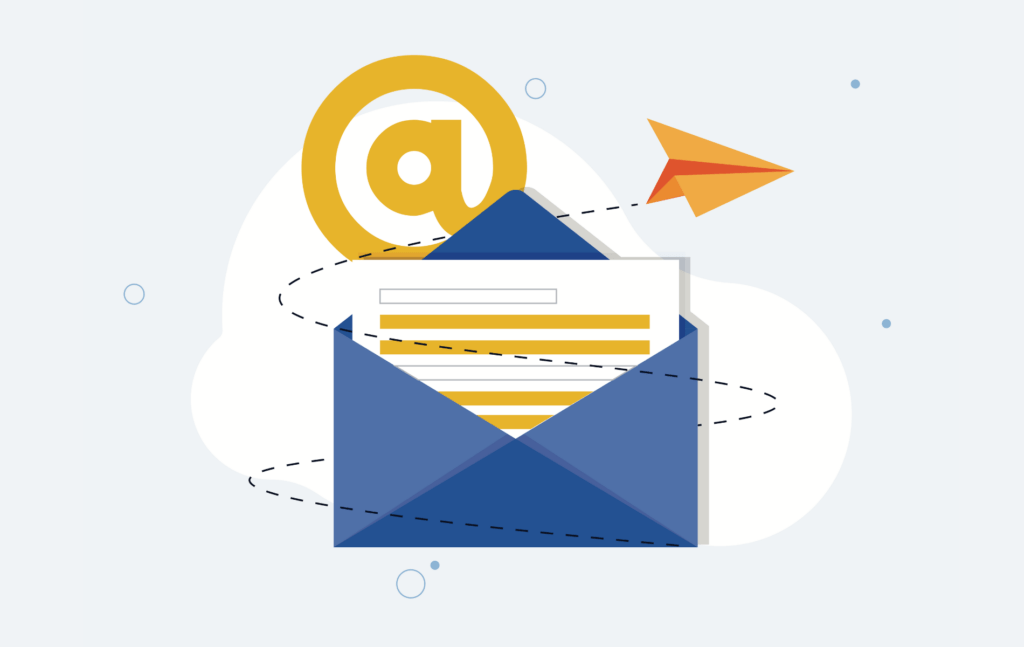Email has become the cornerstone of modern communication. It underpins our personal and professional lives, carrying sensitive information and connecting us to the world. Unfortunately, this convenience comes with a vulnerability – email accounts are prime targets for hackers.
Understanding how email hacking works empowers you to safeguard your accounts and prevent potential disaster.
Why Hackers Target Emails
Hackers covet email access for several reasons. Your inbox can be a treasure trove of personal information:
- Login Credentials: Emails often contain forgotten login details for other accounts, like social media profiles or banking platforms. A hacker with access to your email could gain entry to these other accounts as well.
- Financial Information: Emails might include receipts, invoices, or bank statements containing sensitive financial data. Hackers could exploit this information for fraudulent purposes.
- Private Communication: Emails hold personal conversations, potentially revealing sensitive details about your work, family, or social life. This information could be used for blackmail or social engineering scams.
- Contact Lists: Your address book serves as a goldmine for future phishing attempts. Hackers can leverage your contacts to launch targeted attacks, impersonating you to trick them into revealing information or clicking malicious links.

Common Email Hacking Techniques
Hackers employ a variety of methods to infiltrate email accounts. Here are some of the most frequent ones:
- Phishing Attacks: Deceptive emails designed to appear legitimate lure you into clicking malicious links or downloading infected attachments. These links can take you to fake websites that steal your login credentials when you enter them. Attachments might harbor malware that grants hackers unauthorized access to your system.
- Brute-Force Attacks: Hackers use automated software to systematically guess your email password. Weak passwords, especially those based on personal details or dictionary words, are susceptible to such brute-force attempts.
- Malware: Malicious software like keyloggers can be installed on your device through phishing attacks. These programs record your keystrokes, capturing your login credentials and other sensitive information.
- Social Engineering: Hackers exploit human psychology to manipulate you into divulging information or clicking malicious links. They might pose as a trusted source, like your bank or a colleague, creating a sense of urgency to gain your compliance.
Recovering from an Email Hack
If you suspect your email has been compromised, act swiftly. Here are some steps to take:
- Change Your Password: Immediately create a strong, unique password for your email account. Don’t reuse this password for any other online accounts. Consider using a password manager to generate and store complex passwords.
- Enable Two-Factor Authentication: Two-factor authentication (2FA) adds an extra layer of security by requiring a second verification code, typically sent to your phone, to log in to your account. This makes it significantly harder for hackers to gain access, even if they have your password.
- Scan for Malware: Run a thorough scan of your device with reputable antivirus software to detect and remove any malware that might have been installed.
- Report the Attack: Inform your email provider about the hack. They can help you secure your account further and investigate the incident.
- Be Wary of Further Attacks: Hackers often target compromised accounts for follow-up attacks. Be cautious of unusual emails or requests, even from seemingly familiar senders.
Professional Help: When to Call in a Hacker
Recovering from an email hack can be a complex and stressful process. In such situations, consider assistance from a reputable data recovery company like Cronus Tech.
Cronus Tech offers a team of hackers – security experts who use their hacking skills for ideal purposes. They can also carry out an email hack if necessary. These professionals can:
- Forensic Analysis: They can analyze your email account and system to identify the extent of the breach and determine the hacker’s entry point.
- Data Recovery: In some cases, they might be able to recover lost or stolen data from your compromised account.
- Enhanced Security Measures: They can recommend and implement robust security protocols to safeguard your email and other online accounts from future attacks.
By combining technical expertise with hacking practices, Cronus Tech can help you regain control of your digital life and restore peace of mind.
Essential Practices for Email Security
Here are some ongoing practices to fortify your email security:
- Strong Passwords: Create unique and complex passwords for all your online accounts. A password manager can be a valuable tool for this purpose.
- Beware of Phishing: Always scrutinize email senders’ addresses and be cautious of unsolicited attachments or links. Never enter personal information on suspicious websites.
- Regular Updates: Make sure your email software and operating system are updated with the latest security patches. These updates often address vulnerabilities that hackers exploit.
- Beware of Public Wi-Fi: Avoid accessing your email or other sensitive accounts on unsecured public Wi-Fi networks. If necessary, consider using a virtual private network (VPN) to encrypt your internet traffic.
- Monitor Your Account: Habitually review your email activity for any unusual login attempts or suspicious outgoing messages. This can help you detect a breach early on.
- Beware of Social Media Oversharing: Avoid sharing excessive personal information on social media platforms. This information can be used by hackers to craft more targeted social engineering attacks.
Expanding Your Security Mindset
Securing your email is an important step, but cybersecurity is an ongoing process. Here are some additional tips to cultivate a comprehensive security posture:
- Data Backups: Regularly back up your important data to an external drive or cloud storage service. This ensures you have a copy of your information in case of a cyberattack or hardware failure.
- Physical Security: Protect your devices with strong passwords or PINs and keep them in secure locations.
- Free Downloads: Exercise caution when downloading software or applications from untrusted sources. These downloads might contain malware.
- Educate Yourself: Stay informed about the latest cybersecurity threats and best practices. Many reputable organizations offer free resources and educational materials.
By adopting these practices and maintaining a vigilant mindset, you can significantly reduce the risk of email hacking and safeguard your valuable information. Remember, cybersecurity is a shared responsibility. By taking these steps, you contribute to a more secure online environment for everyone.




One comment
Concerns over internal leaks were swiftly addressed by Cronus Tech’s ethical hackers, who implemented effective monitoring and tracing measures. Their expertise not only mitigated risks but also enhanced our internal security protocols, ensuring our company’s trustworthiness.
Comments are closed.